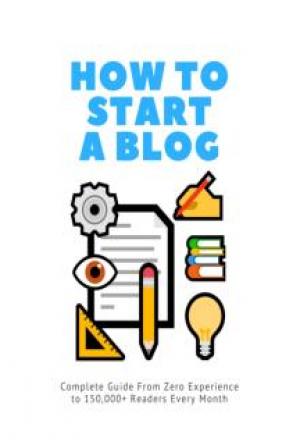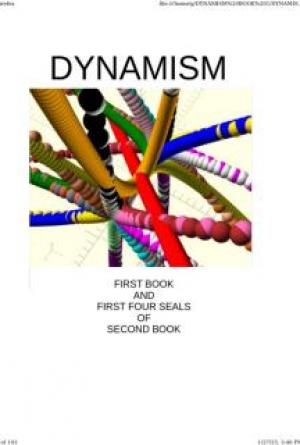Quality learning begins from the first day to a
nursery with the tiffin, being the only content of the bag, the story of Computer can no longer be an adult one. It may sound far-fetched, but tests have revealed that it is more so a true explanation in reality. At times, a parent may find this taste of a child a smart one with expectation to conduct their day-to-day data entry operations and even locating particular information on the web by just clicking on the keypad using Google search as their available medium. The current scenario laminates in public the reality of the too much dependence on web content rather than in comparison to their own expertise. They are bound to rush to the available hints and data for their own intelligence.
They say that "Computers, software, CDs and Smart Toys should always be considered a supplement to the other, more concrete learning activities like completing puzzles, building with Lego and blocks, reading books, creating art projects and playing on the playground…”, is obvious by our observations and research, out of the present day scenario.
The PATH or the drive is no new to the kids. No wonder you tell a child to write an essay as homework, he/she is bound to download the content to present before you the next day, making you baffle to the interest of the many others lying in the queue. The parents often think this as a menace out of the challenging work wisdom they possess in order to earn their daily living. Their frames are not yet over with more demands for the CD-Burner and Scanner for more computing and smart-study as they call it. The only option available to the poor parents of the IT age is to ponder over for solace and to accept novel ways to convince their future generations in regards to motivations and guided involvement. They ought to take a balanced approach to policies and practices for children's use of the Internet. One must at the same time initiate conversations with teachers, administrators, and parents, rather than set and implement rules that may be perceived as too rigid. One must take note that all stakeholders have a chance to contribute to the decision-making process. There is no doubt in the fact that a computer and a great software can be fun and exciting learning tools, and can even provide practice of pre-academic and academic skills. But at the same time it is indispensably true to keep in mind, however, that computer software cannot teach a child concepts that he/she is not developmentally ready for. Computers should always be considered as a supplement to other, more concrete learning activities like completing puzzles, building with Lego and blocks, reading books, creating art projects and playing on the playground. It is universally true keeping the database analysis in view out of the day.
Hey, as a matter of fact, the Computer is no doubt a friendly machine. A tool to accommodate all the probable queries of an individual with the aid of the software but at the same time the umbrella has to be there in order to have what is required rather than to have all with none relevant. One must pay as much attention to highlighting good content as to restricting banned content. Remember that overzealous watchdog policies may inhibit Internet opportunities for students, whose only access to the Internet is through school. Take the example of the many parents who take a balanced approach to the Internet. Both at home and at school, set rules and limits on Internet use, but also guide their children to good Internet contents. Avoid gender stereotypes, especially since girls and boys - unequal percentages
- are making use of the Internet. This should be the area of interest of the researchers as they discriminate during data analysis. No wonder an email ID in Greek and Latin with references to SEX determination and as such the great valuation of the communication lies within.
Quality education is the need of the hour and with the result, at the same time the boards of education and learning must develop a plan to help schools, teachers and parents educate children about safe, responsible use of the Internet. For example, encourage schools and families to place computers in rooms that are shared (such as family rooms, dining rooms, offices or libraries), where children can use the Internet with others around them. And teach children never to share personal information (name, address, telephone, or credit card number) online. This may go a long way in making this a success. The day-to-day activities at the school and the home education will provide a healthy liking for the computer and this is required to foster appropriate use of the Internet among preschoolers and other young children.
It is also a debating fact that despite the increasing use of computers in elementary schools, there hasn't been a decrease in the formal teaching of penmanship. The children use just as much paper as they did before computers became a classroom standard. Hence one has to keep in mind that writing with a pencil involves an equally important set of skills as typing on a keyboard.
Exposure to the Internet can help preschoolers and children in the early elementary grades master literacy and other cognitive skills and also can spur integration of these skills early in their development. Parents and school leaders who look for online opportunities for younger children can be guides to engaging, age-appropriate content. The Internet can reinforce everyday learning opportunities and be a powerful tool for fostering interaction among adults and young children. It takes much to conduct the new tool of knowledge in this regard. The task of the teaching gentry must ponder in regard to computing of this sort, they must help teachers, parents, and children use the Internet more effectively for learning. For example, they ought to suggest education-related websites for parents and children to visit together - and give them learning activities to do once they get there. Offer education-related help for students online, like after-school tutoring. Provide teachers with professional development opportunities to help them model effective use of the Internet as a tool for students' learning, including integrating Internet learning with regular classroom learning. If teacher training takes place outside of regular school hours, offer teachers incentives to participate when possible. If teacher training pulls teachers out of the classroom, parents should be made to know why it is important to support this professional development. The usage of the Internet to communicate more effectively with parents and students goes a long way to generate interest for all. For instance, launch school district or school websites or publicize websites in newsletters and places where parents are likely to be. Update websites frequently with relevant, timely information. Post exemplary student work online, with teacher commentary explaining why this work meets academic standards. Make websites interactive by soliciting comments or holding public forums about education issues online. Encourage teachers, parents and students to communicate through email, make their email IDs and even communicate off-line with that reference only for generating pulses of craze and interest of being a netizen. And finally, engage the community. This can be very easily done through holding computer and Internet training classes for parents or hosting convenient opportunities for parents, community leaders, librarians, teachers, and others to talk together about children's use of the Internet. Schools may want to collaborate with libraries, community computing centers, local colleges and universities, and other places that offer alternative access to computers.
Educators and parents have been quite concerned over the years about possible negative effects of computer and Internet on children's desire to interact with others. Unlike television, however, the more interactive, child-controlled nature of some computer software can be conductive to sharing, taking turns and playing games together. Also the fact lies to the versatile saying that the familiarity and comfort with computers is certainly useful for daily survival, both in and out of school. The risk associated with this myth comes from placing too much emphasis on the computer as a "must" for children's future welfare. It's better to regard computer use as simply one more experience or tool that can support the development of the good oldfashioned learning skills such as being able to read and write, think logically, and solve and analyze problems. It can also enhance the learning process by allowing children to have experiences not possible without a computer. Ultimately out of the study it capsules more of the truth to have this machine as a tool rather than an aid for all times. One must utilize its measures as and when required from the children point of concern.
the day. Kudos’ to the necessity … the ultima of choice in action….by Chance and not by choice. IT is there is stay and mandatory to breathe into…… As a matter of fact, Regardless of one’s career choice, one can benefit from a knowledge of computer hardware and software, and how these components function together. Even if one’s job does not require him to work directly with a computer, this knowledge may help him to envision new ways of using computers in the work, resulting in a more productive work environment. This can also lead to career advancement opportunities. If one thinks this case is being overstated, and that computers are not being used that much, consider this: computers are popping up in places and professions that may seem unlikely.
Kudos’ to Babbage, towards being the FATHER OF COMPUTERS. Let there be power of COMPUTING building a better place to live in. May Peace be on Earth! Jai Jagat………
REFERENCES
1.
Quality Learning through Quality Teaching by Dheeraj Mehrotra
We are building the pillars of our future generation and if the seedlings are well fed they ought to produce Quality Results. – Dheeraj Mehrotra ...
www.boloji.com/analysis/069.htm
FUTURE SCOPE
The ultimate is Quality Culture and the Happening things to happen. It counts in a big way to promote the very cause of darkness out of the old traditions. It is very easily encapsulated into the minds of the workforce, the users, the public opinion and to the masses. IT has paved as the irreristible mantra for SURVIVAL, the capsules for QUALITY CULTURE, the tablet for PROSPERITY at large. Pressing it with the opinion of the masses is the fact that it is a REALITY in practice. The boom of technology is bound to promote and enhance the image of Quality in Education and the SOCIETY in a big way. Thinking of SOCIETY, aiming a future, working for…. Without IT has become a JOKE of
2.
Quality in Education: Quality In Education?
Dheeraj Mehrotra City Montessori School & College, Lucknow, INDIA. Posted by: Dheeraj Mehrotra | January 18, 2006 01:13 AM ...
www4.asq.org/blogs/edu/2005/11/quality_in_education.html
- 21k Cached
Similar pages
3. Towards Quality IT Literacy For All
National Teacher Award 2005. presidentpix.jpg. Dheeraj Mehrotra, teacher from City Montessori School, Lucknow, receiving the award from President ...
dheerajmehrotra.tripod.com/ - 14k Cached
Similar pages
4. Imparting Quality IT Education For All







